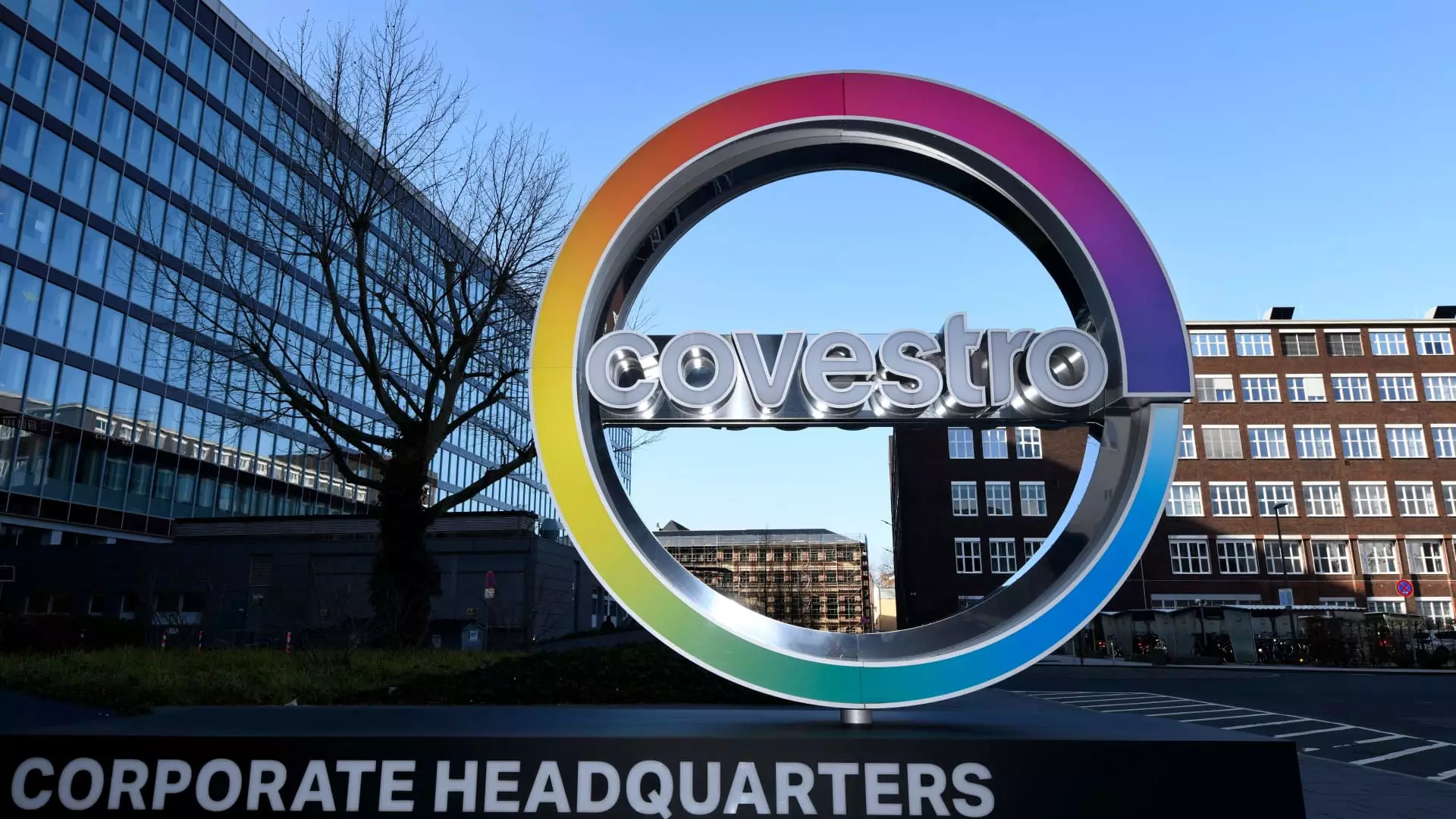In a significant development within the global chemicals industry, the Abu Dhabi National Oil Company (ADNOC) has announced its acquisition of Covestro, a leading German chemical firm, for a staggering 14.7 billion euros, equivalent to approximately $16.4 billion. This acquisition marks a decisive step for ADNOC in its strategy to cement itself as one of the top five players in the chemicals market. By offering 62 euros per share, ADNOC commits to a deal that reflects a substantial premium of about 54% over Covestro’s market value as of June 19. Clearly, this acquisition is not merely a financial transaction but a strategic alignment aimed at elevating ADNOC’s standing in the competitive global marketplace.
The rationale behind this acquisition extends beyond mere financial gain; it symbolizes ADNOC’s ambition to diversify its portfolio and reduce reliance on oil revenues. Sultan Ahmed al-Jaber, ADNOC’s group CEO, typifies the enthusiasm surrounding this acquisition by highlighting Covestro’s leadership in high-tech specialty chemicals. The utilization of advanced technologies, such as artificial intelligence (AI), in Covestro’s operations is particularly appealing in today’s innovation-driven economy. Covestro, having evolved from its origins as a division of Bayer, specializes in polymer materials catering to various industries, including construction, telecommunications, and sports, thereby presenting a diverse array of growth opportunities for ADNOC.
Moreover, the potential synergies between ADNOC’s existing infrastructure and Covestro’s technological innovations could catalyze advancements in sustainable practices within the chemicals industry. Such integrations will not only bolster the firm’s competitive edge but also address the growing demand for environmentally responsible production methods.
For Covestro, this acquisition presents a dual-edged sword. On one hand, it assures a robust financial backing that could accelerate its sustainable practices amid ongoing economic challenges in the German and global chemicals sectors. Markus Steilemann, the CEO of Covestro, underscored this sentiment, expressing optimism that this partnership could enhance their efforts in implementing a sustainable future strategy. Yet, with the amalgamation of two corporate cultures, challenges may arise in aligning operational philosophies and strategic goals, potentially creating friction in the transitional phase.
Furthermore, amidst a backdrop of evolving market conditions, such a prominent acquisition sets a precedent for foreign investment into European markets, particularly from the Middle East. It raises questions about the evolving landscape of global corporate governance and competitive dynamics as traditional boundaries continue to erode. This deal is poised to shift perceptions of intercontinental corporate partnerships and may inspire other Middle Eastern firms to explore similar strategic acquisitions.
From a regulatory perspective, analysts appear largely optimistic about the deal. Jefferies analysts highlighted minimal anticipated regulatory hurdles, suggesting that the operational overlap between ADNOC and Covestro is limited. This finding paints a favorable picture for a smooth transaction but does not negate the complexities involved in any such high-stakes acquisition. It is crucial for both parties to navigate European Union regulations cautiously to avoid potential pitfalls that could delay the deal’s finalization or complicate future operations.
Moreover, as Covestro’s management prepares to recommend the transaction to shareholders, the focus will undoubtedly turn toward ensuring that all stakeholders recognize the long-term viability of this strategic partnership. If executed correctly, this move could solidify Covestro’s position in a challenging market and provide ADNOC the diversification it seeks as it broadens its operational scope beyond oil and gas.
ADNOC’s acquisition of Covestro marks a significant milestone not only for the two entities involved but also for the global chemicals landscape. As both companies chart their future trajectories, the implications of this deal will resonate within the industry, signaling a shift in how businesses approach growth, diversification, and sustainability in the face of changing market dynamics. The success or challenges that arise from this partnership may very well dictate the evolution of corporate strategies within the chemicals sector for years to come. As the world turns towards more sustainable practices, it will be intriguing to monitor how this acquisition shapes innovations and operational tactics moving forward.


Leave a Reply